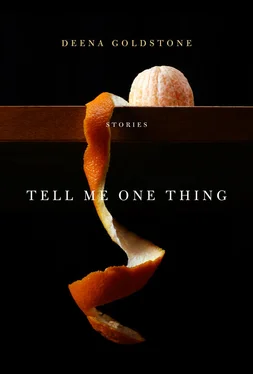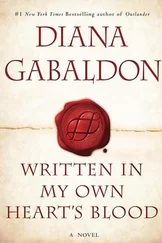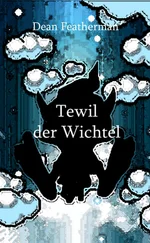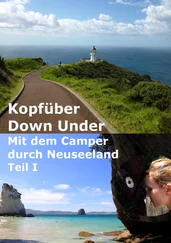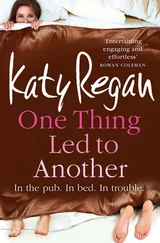Maggie doesn’t like the sound of that. When you are a guest, you have to be on your best behavior and you can’t act the way you really want to. She glances over at her mother, whose eyes are now on the road. Maggie knows that her mother doesn’t like to drive the freeways. Whenever they went somewhere far away from home, somewhere that included freeway driving, her father always drove and sometimes her mother would grab hold of the front seat, where she was sitting, hold on tightly, and say, “How fast are you going, Richard?” Her daddy always answered with a wave of his hand toward the road, “The flow of traffic, Lucy.”
Now, as her mother concentrates on getting them to Bernadette’s, her tightly curled body hunched over the wheel, Maggie knows that if she said she didn’t want to leave her bedroom with all her favorite books lined up in order of preference, and her best friend, Ashley, and her preschool teacher, Miss Julia, not one of those things would change her mother’s mind because here they are, after all, in the car, on their way. As Maggie looks out the window and silently counts all the blue cars she sees, she wonders what her daddy did that was so bad that her mother had to pack their bags and leave.
She feels like she has two daddies — the during-the-week daddy who goes to work at the university and comes home talking about his work and doesn’t really have time to play with her because he goes into the den after dinner and works some more. But then there is her Sunday daddy. Ever since she was just a baby, from lunchtime on Sunday till dinnertime, it was understood that it was their day. And as Maggie got older, Richard would let her set the agenda. “What do you want to do today, mouse?” he would ask her. And unless she said something silly like “Fly to the moon,” Richard would find a way to make it happen. Sometimes they went to the beach. Lots of times they drove to different cities — Long Beach to see The Queen Mary or the Anza-Borrego desert to see the cactus. One Sunday he took her to Olvera Street in Los Angeles, the place where the city was born, he said, and there was mariachi music and Mexican food and tiny shops selling straw purses and embroidered shirts. Another Sunday they bundled up in parkas and went to Big Bear Mountain to play in the snow.
But even on the Sundays when they didn’t do anything extra special, they still went to a restaurant to eat lunch, or to a park to watch the dogs play, or just drove to see where they would end up.
Those were the times Richard wasn’t impatient or too busy to read her a story, which seemed to happen the rest of the week. It was their Sunday afternoons that Maggie would miss. It is the daddy who did those things with her that she’s afraid she’ll never see again.
LUCIA TAKES THE CLOVERFIELD BOULEVARD EXIT off the 10 Freeway and stops at the light. Immediately she turns off the air conditioning and opens the windows. It’s like they’ve traveled to another country. It was close to one hundred degrees in Riverside, and now the breeze coming through the window is cool and smells like the ocean.
Lucia lets out a sigh that sounds like a long, drawn-out “ahhhh.” Maggie turns to her, a quizzical look on her face, and Lucia laughs. “It just feels so much better here. We’ve dropped thirty degrees.”
As Lucia makes a left turn and travels south on Cloverfield, her shoulders lower, her back gets straighter. So concerned has she been with getting them here to Santa Monica that it hasn’t occurred to her that her daughter hasn’t uttered a single word the entire trip.
BERNADETTE IS GARDENING IN HER front yard as Lucia’s Honda Civic travels slowly down Sycamore Street, braking for the multiple speed bumps that run the length of it. She’s a solid woman, ample, in her forties, with freckled skin and hair that has gone prematurely white and is swept back loosely into a ponytail. She’s wearing shorts, a T-shirt with a giant sunflower silkscreened on the front, and a wide-brimmed straw hat as she kneels next to a flower bed, pulling out weeds. When she spots Lucia’s car, Bernadette stands and waves, wide, long sweeps of her arm, as if she were calling in circulating aircraft.
The house she stands in front of is Max’s house. It is a small two-story, painted white, with a wide front porch punctuated by square pillars. The trim on the house is black, and the shutters are a faded cinnamon. It looks like a miniature plantation, someone’s idea, way back in the forties when it was built, of an homage to the South. Like most buildings in Ocean Park, it is far from spruced up and a long way from new. Along with its nearest neighbor, Venice Beach, Ocean Park is proud of its California casual air.
There’s a long driveway to the right of the house, and, at the end of it, in the far right corner of the backyard, is a two-car garage with a small apartment sitting above, spilling over the sides like a muffin top. Maggie stares at it as Lucia parks their car in front of the garage. Is this where we’re going to live? For how long? Why? These are the questions running through Maggie’s head, but she doesn’t ask them. She turns and watches her mother, waiting to see what Lucia is going to do.
RICHARD WEISS ARRIVES HOME AT five thirty. Today is the last day of student conferences to wrap up his senior seminar on the ethics of genetically modified foods. It’s the one class he enjoyed teaching; the conversations were always lively. He’s already turned in his grades for his freshman Introductory Chemistry and his upper-division Chemistry 240. Now, finally, this summer, he’ll have time for his own research. He’s struggling with a process called RNA interference, which has the potential to shut down an organism’s ability to express a specific gene. Richard is interested in the gene that produces polyphenol oxidase, the enzyme responsible for browning in fruit. Richard’s hope is that he can create an apple that doesn’t discolor when cut.
The first thing he notices as he parks his car in its assigned space, behind the apartment building, is that Lucia’s car isn’t in her spot adjacent to his. She’s almost always home when he gets there, but he figures she might have forgotten something and made a quick run to the store. Or maybe Maggie had a playdate that ran long. Always logical, he runs through these possible scenarios as he walks through the courtyard and makes his way to the front unit of the westernmost building. Although he often spends large swaths of his day impervious to his surroundings, this afternoon, perhaps because he’s a bit more relaxed, he notices again how graceful their old apartment complex is — two buildings of three units each, forming a square around an open green space. Yes, it’s old, probably built in the twenties, but the architecture is Spanish, the walls are thick, and the roof is half circles of weathered red tiles.
Once inside his apartment, he puts his briefcase and keys down on the small table by the front door and goes immediately into the bedroom to change. This is his routine. Whatever clothes he wears to teach in, even if it’s only jeans and a button-down shirt, always feel too constricting when he’s home. He sheds his shoes and socks, his confining long pants and long-sleeved shirt, and dons flip-flops, shorts, and a T-shirt with the faded Oberlin logo on it. Ah, comfort, finally .
Next he goes into the kitchen, as Lucia knew he would, and pours himself a cocktail of his own devising. One part lemonade, one part iced tea, and one part cranberry juice, mixed well with three ice cubes. It is as he’s stirring his drink that he sees the note, but it sets off no alarm bells. His first thought is that Lucia, in her ever-considerate way, has written him a note telling him where she is and when she’ll be home.
Читать дальше
